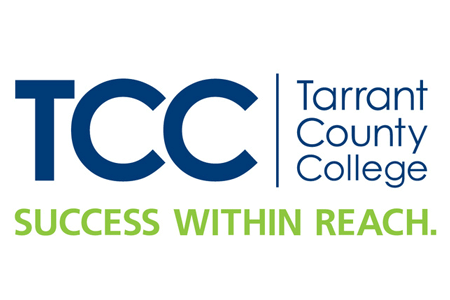Team Collaboration Training
Effective Team Collaboration Requires Building Trust
Boost productivity, energize employees, and increase your bottom line by enabling team collaboration through proven team leader training.
Collaboration training is key to organizational success because it provides team members with tools to work together more effectively toward common goals.
But when teams don’t work together well, energy is depleted, productivity is lost, and performance lags.
Ineffective teams are often caused by a lack of clarity about outcomes, inadequate governance processes or information-sharing, and turf wars. Problems with teamwork are often tied to lack of trust. Without trust, people operate out of fear. Eliminate that fear, and teams gain productive energy, creativity, speed, and better results.
Fixing a team’s problems isn’t a one-person job. Team members need to feel a sense of ownership over how the team operates. At the same time, team leaders must be willing to show humility, change behavior, problem-solve, and take on the hard work of dealing with differences. Team leader training programs can prepare managers to address what isn’t working on teams, view trust as a must-have resource, and model behaviors that support team principles.
Our proven team leader training programs and team collaboration training solutions equip people managers and team members to turn team values into agreed-upon behaviors — which become the foundation for mutual trust, respect, and higher team performance.
Transform the Way Your Organization Works With Team Collaboration Training
Upskill People Managers With Team Leader Training & Facilitate Better Team Collaboration
When teams effectively self-govern and team leaders commit to fostering a culture of trust and collaboration, the building blocks are in place for team success and stronger organizational performance.
Use our proven team leader training programs to upskill individual managers, increasing their levels of self-awareness and emotional intelligence while improving their communication and conflict management skills so they lead their teams more effectively. At the same time, provide team members with access to team collaboration training to help facilitate greater trust, cooperation, rapport, and psychological safety within the team. In combination, these interventions will:
- Reduce conflicts and build trust;
- Improve team decisions, making them faster, higher quality, and customer-driven;
- Minimize cycle time and eliminate non-value-adding work; and
- Increase team productivity, enabling them to take responsibility for the success of the enterprise.
You Can Deliver Our Proven Team Collaboration Training Content, or We Can
You Deliver
We can equip your facilitators to deliver an internal team collaboration training workshop, either online or in-person, whichever you prefer:
Access everything your internal HR or team leaders need to upskill your people by hosting a team collaboration training workshop
Let’s talk about how you can leverage this proven content for team collaboration training in a custom internal development initiative
We Deliver
Or, we can offer your individual people managers access to our proven team leader training programs, or incorporate our team collaboration training content into a larger leadership development initiative for your organization:
Combine with other topic modules and interactive experiences into a customized learning journey for your people
Our highly personalized leadership programs offer team leader training that enables managers to become better leaders of teams
What Our Clients Are Saying
Organizations that have partnered with us to incorporate team leader training programs and team collaboration training solutions into their development initiatives consistently tell us the same thing: their experience with CCL made a significant impact on their culture — and their bottom line.
But don’t just take our word for it — take theirs.
“Now, we are a high-performing team that works together, and also recognizes that individual contributions matter — we are a composite of the best of our wisdom.”

Program Participant
Tarrant County College
“We have created a critical mass of leaders who are connected, collaborative, and committed to our mission. We are working in more system-focused ways and leveraging our strengths in ways we never anticipated.”

Jon Abeles
Senior VP of Talent Management and Diversity
Mercy Health
Let’s Discuss Team Collaboration at Your Organization
Our experts are here to help. Let’s have a conversation about incorporating our team collaboration training content into your development initiatives and how our team leader training programs could make your people managers stronger leaders of teams.
Team Leader Training & Team Collaboration: Resources
Why invest in team-building and collaboration? Because highly collaborative teams directly impact your organization’s productivity and bottom line.
Watch this webinar as we discuss how organizations can leverage solutions focused on team-building skills for leaders that can improve collaboration and produce better results.
Given the rise of remote and hybrid work, effective virtual collaboration has never been more important. Success requires more than technological solutions – interpersonal skill development is critical, too.
For a team to succeed, all members should move in the same direction. Take some time upfront to agree on a team charter so you can define your purpose and track your objectives.
In a team, every member plays a role that either helps or hinders progress. Learn some helpful communications tools so you can be a teamwork activator instead of a blocker.
Frequently Asked Questions About Team Leader Training & Team Collaboration
Team leader training lays the groundwork for success and strong performance, and enhances team collaboration skills, by equipping people leaders to reduce conflict, increase productivity, and speed up decision-making. Effective team leader training develops self-awareness, interpersonal skills, emotional intelligence, and the ability to acknowledge and resolve conflict. The result is improved team collaboration and trust.
Becoming a better team leader requires having candid conversations about what is and isn’t working, viewing trust as a must-have resource, and insisting on behaviors that support collaborative principles. With intentional effort, team leaders can improve virtual collaboration across the organization and build stronger, more cohesive teams, even if they’re not co-located. Additionally, organizations that are looking to enhance their teams’ collaboration skills and to build more trusting cultures can equip their people managers with the skills they need to succeed by offering them access to development, such as our research-based team leader training programs, available either online or in-person.
An organization that values teamwork will intentionally leverage technology to facilitate group communication in real time and ensure its people have opportunities for development. This is typically provided through access to team leader training for individuals and team collaboration training for groups. Also, many organizations may work to ensure that their teams are an optimal size, giving employees a chance to devote more time to less projects, thereby boosting engagement and productivity. Learn more ways to foster team collaboration by setting team norms and behavioral expectations with these 10 steps.
More questions? Our experts are here to help. Let’s have a conversation!
Other Topics Related to Team Leader Training
Package our research-based team collaboration training content with other proven leadership development topics and programs for a customized, scalable solution perfect for your organization’s unique needs, context, and culture. Related topics include:






